News in Brief
-
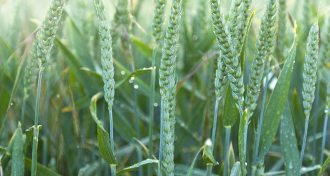 Life
Life‘Sneezing’ plants may spread pathogens to their neighbors
A “surface tension catapult” can fling dewdrops carrying fungal spores from water-repellent leaves.
-
 Health & Medicine
Health & MedicineRotavirus vaccines may lower kids’ chances of getting type 1 diabetes
Vaccination against rotavirus is associated with a reduced incidence of type 1 diabetes in children, according to an analysis of U.S. insurance data.
-
 Particle Physics
Particle PhysicsDiamond detectors could aid the search for dark matter
Elusive dark matter particles could be spotted when they slam into electrons or atomic nuclei within diamond, scientists say.
-
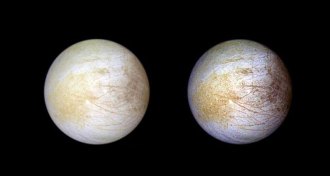 Astronomy
AstronomyTable salt may be hiding in Europa’s underground sea
Observations of Europa by the Hubble Space Telescope suggest that the moon’s ice-covered ocean may hold sodium chloride, or common table salt.
-
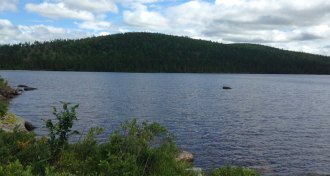 Environment
EnvironmentSome Canadian lakes still store DDT in their mud
Yesterday’s DDT pollution crisis is still today’s problem in some of Canada’s lakes.
-
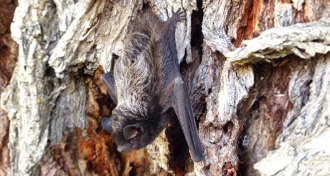 Animals
AnimalsBats are the main cause of rare rabies deaths in the U.S.
In the United States, bats are mostly to blame for rabies deaths, while rabies transmitted by overseas dogs comes in second.
-
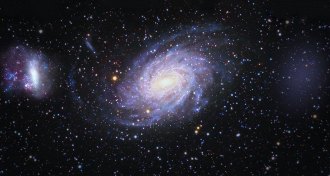 Astronomy
AstronomyAstronomers may have spotted the ghost galaxy that hit the Milky Way long ago
Astronomers think they’ve identified a galaxy that hit the Milky Way and ruffled its edges millions of years ago.
-
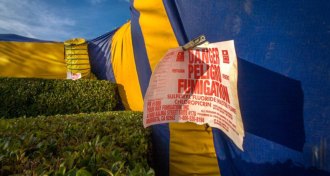 Agriculture
AgricultureThe U.S. is still using many pesticides that are banned in other countries
In 2016, the United States used millions of kilograms of pesticides that are banned or being phased out in the European Union, Brazil and China.
-
 Health & Medicine
Health & MedicineMedicaid-expanding states had fewer cardiovascular deaths than other states
Counties in states with expanded Medicaid eligibility had 4.3 fewer cardiovascular deaths per 100,000 residents, on average, than if they hadn’t expanded.
-
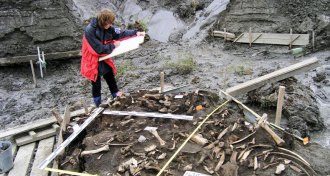 Genetics
GeneticsDNA reveals ancient Siberians who set the stage for the first Americans
A previously unknown population of Ice Age people who traveled across Beringia was discovered in Russia.
By Bruce Bower -
 Particle Physics
Particle PhysicsPhysicists have finally figured out how pentaquarks are built
The particles are made of up two smaller particles, stuck together like atoms in a molecule.
-
 Genetics
GeneticsAlmost all healthy people harbor patches of mutated cells
Even healthy tissues can build up mutations, some of which have been tied to cancer.